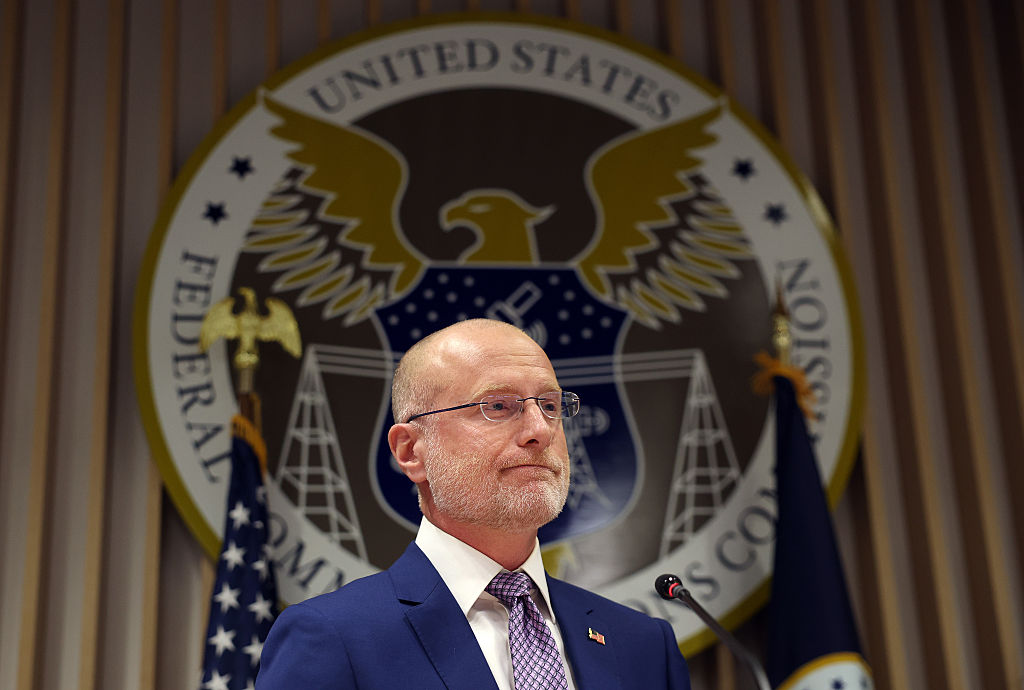Transcript: Robert Kaplan discusses the economy on "Face the Nation," June 14, 2020
The following is a transcript of an interview with Dallas Federal Reserve Bank President Robert Kaplan that aired Sunday, June 14, 2020, on "Face the Nation."
MARGARET BRENNAN: Robert Kaplan is head of the Dallas Federal Reserve, one of the 12 banks that make up that system. Good morning to you.
FEDERAL RESERVE BANK OF DALLAS PRESIDENT ROBERT KAPLAN: Good morning, MARGARET.
MARGARET BRENNAN: Houston is a hot spot, as we just heard. Saturday marked Texas's highest COVID hospitalization rate since this pandemic began. The governor is continuing to reopen businesses. Elsewhere in the west, out in Arizona, also seeing some hotspots, flare ups, governors not requiring people to wear masks. As an economist, what do you make of these policy choices? Is it going to impact the economic rebound?
KAPLAN: Yes, so we knew as part of the reopening that we would get more cases. The thing we're watching is- is- are there so many cases that it has the risk of overwhelming the health care system. We're not seeing that at all here. But- but I think what you point out is the- the health care response at this point is as important as fiscal or monetary policy. And in particular, it's critical, based on my conversations with epidemiologists, that people widely wear masks, that we have good testing and contact tracing. And I think the- the extent we do that well will determine how quickly we recover. We'll grow faster if we do those things well. And right now, it's relatively uneven.
MARGARET BRENNAN: So that is a false choice, the dichotomy between reopening and being able to follow these policy prescriptions. I think that's an important point you made.
KAPLAN: That's right. That is exactly what I'm saying.
MARGARET BRENNAN: Do you still believe that the national unemployment rate will tick up to 20% because we've seen this change in the past few weeks?
KAPLAN : No, we're- we're on our way down right now. So there's some dispute about some of the data. But let's say the national unemployment right now- unemployment rate right now, if you did it accurately, we think is in the mid-teens. The- the other measures suggest there's even more slack. We're going to get positive job growth in June, July and from here. The issue we have, that I think the chairman talked about a few days ago, is if we're- we're- even with that growth, we're going to end the year with an elevated unemployment rate. And that depending on how fast the service sector comes back and people re-engage, we're still going to have an elevated level of unemployment maybe as high, based on my forecast, of eight percent or more. And it means that some people won't be able to go back to their old jobs and will have to find new jobs and this is why skill training, helping people find new jobs is going to be also a big part of this effort.
MARGARET BERNNAN: If Congress doesn't renew provisions like the federal moratorium on evictions, if they don't include the $600 dollar boost to unemployment when it all expires in July, what will be the impact?
KAPLAN: So fiscal policy, and we've said this, is going to be very important from here. Monetary policy has a key role to play and we're doing everything we can, but we don't make grants at the Fed. It's going to take continued, I think, unemployment benefits. Now, they might be restructured to create more incentives for people to go back to work. That all makes sense. I think benefits to state and local governments. Fiscal policy from here is going to be a critical element of the recovery.
MARGARET BRENNAN: And by that, you mean- you're telling Congress that they have to do some work here? I want to--
KAPLAN: I'm being careful as a central banker not to tell the fiscal authorities what to do. But--
MARGARET BRENNAN: I know you are. I know you are.
KAPLAN: But I would say fiscal policy is going to be critical from here.
MARGARET BRENNAN: I know why you're using the language you are. I was just trying to help our audience understand there.
KAPLAN: Yes.
MARGARET BRENNAN: One of your regional Fed presidents from Atlanta- Atlanta, Rafael Bostic, wrote this week that, quote, "Systemic racism is a yoke that drags on the American economy. This country has both a moral and economic imperative to end these unjust and destructive practices." I wonder if you would agree and how you would quantify the cost of the racism--
KAPLAN: Yeah.
MARGARET BRENNAN: --he is talking about?
KAPLAN: I would agree. You know, going into the crisis, we'd made a- a big point and have been working for years at the Dallas Fed but across our Federal Reserve System to help improve skills training, to improve educational attainment because we strongly believe a more inclusive economy will lead to better growth. For years, blacks and Hispanics have had an elevated level of unemployment versus whites. That started to improve dramatically in the last few years. We've now taken a step back as a result of this crisis. But a more inclusive economy where everyone has opportunity will mean faster workforce growth, faster productivity growth, and we'll grow faster. And so I- I think we- we're right to focus on this and bore in on this. It's- it's in the interests of the U.S. The fastest growing demographic groups in this country are blacks and Hispanics. If they don't participate equally, then we're going to grow more slowly.
MARGARET BRENNAN: And more work needs to be done on that front? By--
KAPLAN: No question.
MARGARET BRENNAN: --Congress? I think that's- I think that's what you're saying. All right. Thank you very much, Robert Kaplan of the Dallas Fed, for giving us your insight. And we'll be back in a moment to talk about politics and presidents with our own John Dickerson.



